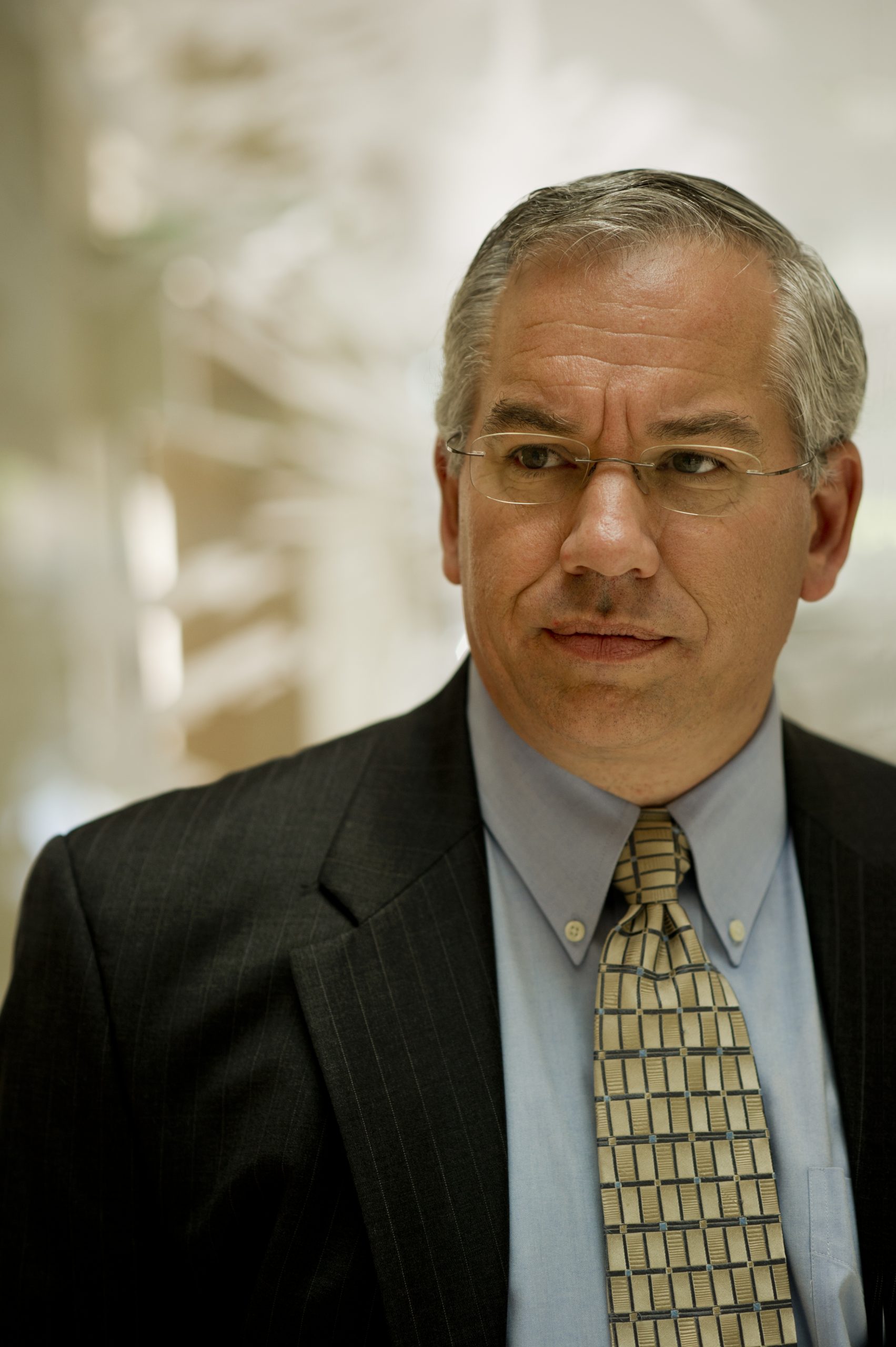If you’re someone like David Harrington, who accepted the position of vice president of Internal Communication for Shell Group in January 2012, going back to school might seem daunting, but begins to seem possible when presented with the option of taking the degree online.

“David is a wonderful example of a seasoned professional who took full advantage of the online learning experience we offer for working adults,“ said Carl Zangerl, academic director, Master of Science in Corporate and Organizational Communication. “Even though David juggled a very busy work schedule, the flexibility of doing an online degree allowed him to manage readings and assignments, as well as interactively share perspectives with other students – on his own time.”
My degree has been invaluable
“I apply the learning from my degree every day,” said Harrington, who completed his Master’s in Corporate and Organizational Communication in December 2011. “Even with 20 years of communications experience, the concepts and frameworks have been invaluable in developing a strategy and plan for moving internal communications in Shell to the next level.”
Having to communicate to over 200,000 employees and contractors isn’t a simple task – “you can’t have discontinuity between internal and external communication, as employees expect to be kept up to date with what the company is doing publicly,” said Harrington in an interview with Strategic Communication Management, who profiled him in their August 2012 cover story.
Equipping professionals with expertise
A Master’s in Corporate and Organizational Communication equips communication professionals, like Harrington, with tools for their arsenal of communication expertise. Students learn skills ranging from negotiation and public speaking to crisis management; the latter an important skill for someone like Harrington, who works in the oil industry. Shell is the second largest energy company in the world with approximately 90,000 employees in more than 80 countries and territories.
Harrington has had many years of experience in crisis communications given his previous external communication roles within Shell. In the article published in Strategic Communication Management, he described having to be transparent with employees during the company’s recent plans to drill for oil in the Arctic seas north of Alaska, one of the oil industry’s most controversial projects.
Crisis Management
“I’ve performed a lot of crisis communication over the last 10 years and we are moving to a system where, when an external event elevates itself to a level of interest, we start talking about it internally in a more systematic way,” Harrington said.
Other measures he takes during a crisis include regular updates to employees through various channels and providing them with answers to questions that family and friends may ask.
“It’s also about telling the story internally, we need to have a constant drumbeat going, not just a reaction to the issue,” he said.
Northeastern University’s College of Professional Studies (CPS) is committed to providing career-focused educational programs that are designed to accommodate the complex lives of motivated learners. Offered in a variety of innovative formats, CPS courses are taught by accomplished scholars and practitioners who have real-world experience. The result is an educational experience founded on proven scholarship, strengthened with practical application, and sustained by academic excellence.
Founded in 1898, Northeastern is a comprehensive, global research university. The university offers more than 80 undergraduate majors and more than 165 graduate programs, ranging from professional master’s degrees to interdisciplinary PhD programs. Northeastern’s research enterprise is aligned with three national imperatives: health, security and sustainability. Northeastern students participate in co-op and other forms of experiential learning in 90 countries on all seven continents.